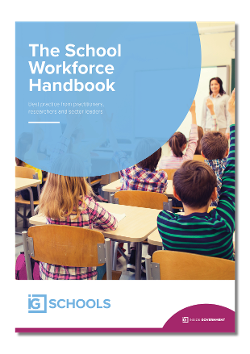With Initial Teacher Education (ITE) Ofsted visits beginning again from 4th May 2021, Initial Teacher Training (ITT) providers may be required to prepare for inspection. Here, Emma Hollis, Executive Director of the National Association of School-Based Teacher Trainers (NASBTT), shares five key tips for helping providers ensure they're providing the best possible support for trainees.
The importance of subject knowledge and curriculum development is clear from both the Education Inspection Framework and the new ITE inspection framework. For ITT providers, and indeed schools, who might have had a greater focus on more general teaching strategies and pedagogy as the focus of their teacher development programmes, there may be some additional development needed in these two areas.
Many frameworks that have been published to guide providers of ITT and CPD (such as the Core Content Framework and the Early Career Framework) are excellent documents but are lacking in subject specificity. There is, therefore, work for providers and schools to do to shape professional development programmes which are truly based around subject. Learning theories and pedagogy are still vitally important, but it will be necessary to teach these within the context of how they apply to particular subjects.
So what can ITT providers, and schools, do? Here are five strategies for them to consider:
1. Work closely with national subject associations
They are your first port of call and hold a wealth of knowledge and understanding around their subjects. Provide membership to the appropriate associations for your staff and trainees and (most importantly) ensure they are engaging with the content. The Council for Subject Associations is a great place to start that conversation.
2. Promote subject-specific professional development
Prioritise CPD opportunities and training which is grounded in subject rather than generic approaches to teaching. From Primary Art and Primary Geography to Secondary History and Secondary Religious Education, there are organisations (including ourselves) which provide the subject-specific development that is really needed.
3. Use your networks, share resources and expertise
Identify and utilise subject knowledge experts across networks of schools. Carefully select trainers and facilitators, working with them to ensure their own subject knowledge is up to date and relevant. Offer them opportunities to engage in high-quality professional learning opportunities which extend their knowledge of subject and encourage them to share this across your ITT provider (and school) networks.
4. Be part of the wider conversation
Regularly engage your ITT trainees and school teachers with the big debates relevant to their subject. Encourage critical thinking around the wider subject and, whilst this can be tempting, avoid a focus on exam specifications. Expertise is created through knowledge and passion for subjects, and there is a need to foster both these.
5. Seek external support as needed
Look at the tools that promote subject-focused discussions between trainees/teachers and their mentors. For example, the NASBTT Curriculum Design and Assessment Toolkit and our Subject Knowledge for Teaching Toolkit both include approaches for promoting subject-focused discussions between trainees/teachers and their mentors. Take the opportunity to engage with NASBTT Networks Live to supplement your subject knowledge development offer for trainees, early career teachers, mentors and subject leads.
Hear more from Emma Hollis in the IG Schools Teacher Training and Recruitment After COVID-19 on-demand webinar.
Access more best practice approaches for supporting your school staff in the IG Schools Workforce Handbook.
Click below to download.
